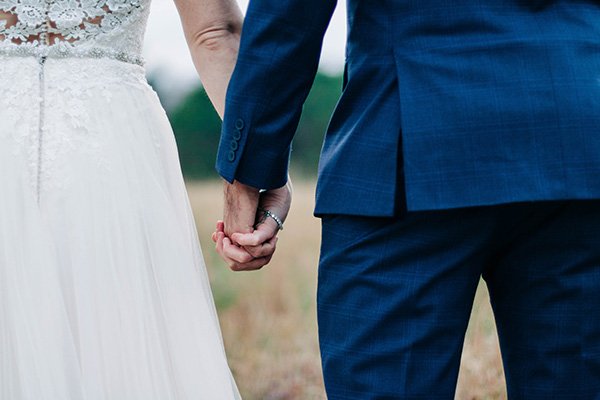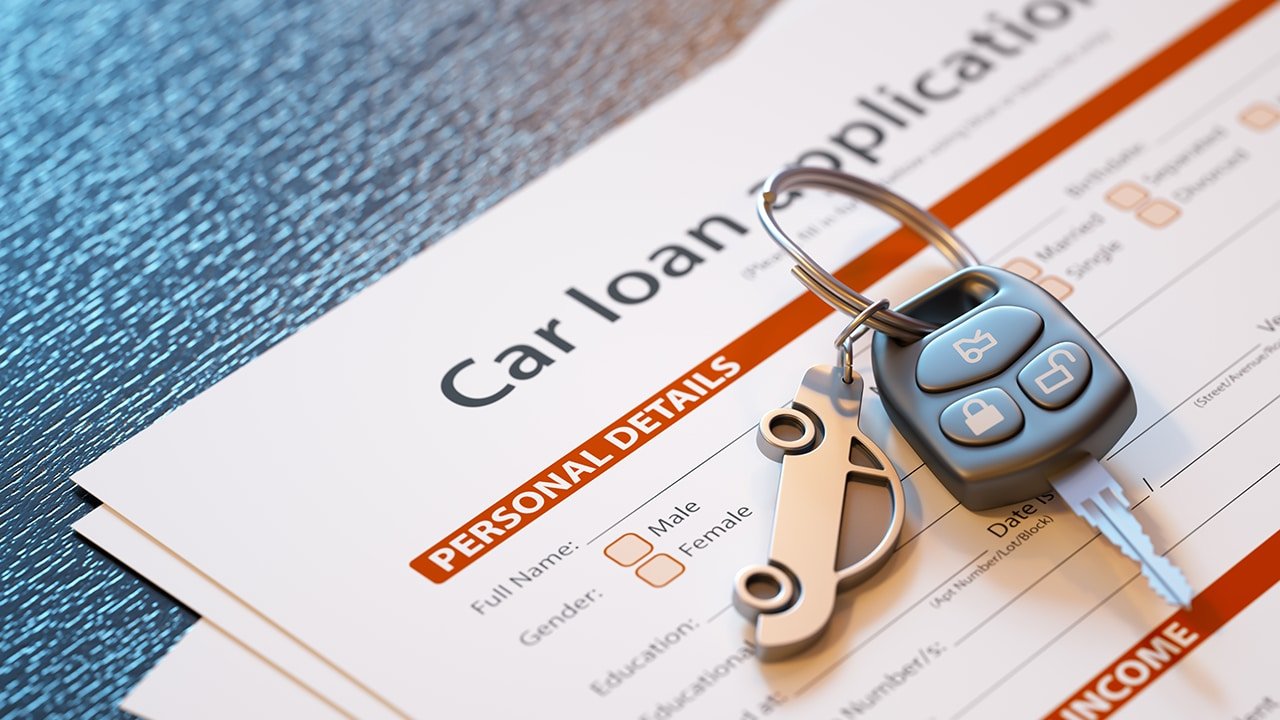Understanding Wedding Loans
Wedding loans serve as a financial solution specifically designed to assist couples in funding their wedding expenses. These loans enable individuals to cover costs associated with their special day, including venue rentals, catering, attire, and other essential services, especially when saving alone might not suffice. For couples facing challenges related to low credit scores, accessing wedding loans for bad credit can be a viable option, allowing them to realize their dream wedding despite financial constraints.
These loans come in two primary types: secured and unsecured. Secured loans require collateral, such as property or savings, which can help lower the interest rates due to a reduced risk for lenders. In contrast, unsecured loans do not require any collateral; however, they often come with higher interest rates due to the inherent risk associated with lending without security. Understanding these distinctions can help couples make an informed decision based on their financial situation and ability to manage debt effectively.
Interest rates and repayment terms play significant roles in the overall cost of the loan and the financial obligations that follow. Couples should thoroughly research and compare different lenders to find the most favorable interest rates and repayment plans that align with their budgets. The potential benefits of obtaining wedding loans for bad credit include the ability to cover immediate wedding expenses, facilitating a memorable event that might otherwise be out of reach. However, it is crucial for couples to assess their financial landscape and ensure that they are capable of managing loan repayments before committing to such funding options.
The Challenge of Bad Credit
Navigating the landscape of wedding loans for bad credit can be a daunting endeavor, primarily due to the limitations imposed by a poor credit history. Bad credit typically arises from various factors, including missed payments, high debt utilization, and past financial hardships. Such a history can serve as a significant barrier when couples apply for loans, as lenders often view credit scores as a reflection of an individual’s financial reliability and risk profile.
When seeking wedding loans for individuals with bad credit, the borrowing power becomes notably diminished. Lenders may either reject loan applications outright or offer loans at less favorable terms, such as higher interest rates and reduced loan amounts. This can lead to couples feeling overwhelmed and constrained, as they must grapple not only with the logistics and costs associated with planning a wedding but also with the financial implications of their credit histories. The increased financial burden can lead to stress and anxiety, potentially impacting the relationship dynamics as well.
Moreover, the stress associated with bad credit is not merely financial. Many couples find themselves caught in a cycle of worry and frustration, constantly considering their options for wedding loans that may not even yield the support they need. As wedding expenses continue to rise, couples hoping for a beautiful, memorable event often feel pressured to find solutions quickly, adding to the emotional toll of managing finances amid such ambitions.
As couples confront these challenges, it becomes crucial to explore alternative avenues for financial assistance and to consider strategies for improving creditworthiness. By addressing bad credit proactively, couples can better position themselves for more favorable loan outcomes and reduce the associated stress of planning their wedding.
Key Documents Required for Wedding Loans
When applying for wedding loans for bad credit, couples must prepare a series of essential documents to facilitate the loan approval process. These documents provide lenders with necessary information to assess both the couple’s identity and their financial situation. Below is a comprehensive list of the key documents required.
The first critical document is proof of identity. Couples will often need to provide government-issued identification, such as a driver’s license or passport, to verify their personal information. This step ensures that the lender can confirm the authenticity of the individuals applying for the loan.
Next, income verification is paramount in establishing the couple’s ability to repay the loan. This typically involves submitting recent pay stubs, W-2 forms, or tax returns. If one or both borrowers are self-employed, additional documentation such as profit and loss statements may be necessary to demonstrate consistent income. Lenders utilize this information to evaluate the couple’s financial stability, especially important when considering wedding loans for bad credit.
Bank statements from the last few months are also required to provide proof of the couple’s financial standing. These statements offer insights into spending habits, savings accounts, and overall financial health. A positive bank balance can alleviate some concerns a lender may have regarding the couple’s ability to manage their finances effectively.
Additionally, lenders may ask for details about the couple’s existing debts, such as credit card bills or loan statements, to better understand their current financial obligations. Gathering this information ahead of time can streamline the loan application process.
Last but not least, a comprehensive list of the anticipated wedding expenses should be prepared. This helps the lender determine the appropriate loan amount and ensures that the couple borrows only what they need. By assembling these key documents, couples will be better positioned to secure wedding loans for bad credit, allowing them to celebrate their special day without excessive financial strain.
Proof of Identity and Residency
When applying for wedding loans for bad credit, one of the critical requirements is the provision of valid proof of identity and residency. Lenders require these documents to ensure that the applicant is who they claim to be and resides at the address provided. This step is essential in mitigating fraud and ensuring that funds are disbursed to the rightful borrowers.
Typically, valid identification can include a government-issued photo ID, such as a driver’s license or a passport. A driver’s license is often the most common document presented since it contains both the applicant’s photograph and their residential address. Alternatively, a non-driver ID can also be used. Providers of wedding loans for individuals with bad credit may accept a variety of identification forms, but they often stress the importance of documents that demonstrate the borrower’s legal identity.
In addition to valid identification, proof of residency must be established. Acceptable documents include recent utility bills, bank statements, lease agreements, or mortgage documents that display the applicant’s name and current address. These documents serve to verify the applicant’s physical location and stability. Without adequate proof of residency, lenders may hesitate to process the loan application due to concerns about the applicant’s reliability and potential loan repayment capabilities.
It is advisable to collate these documents before submitting a loan application, as their absence can delay the process or even result in denial. Lenders often use verification systems to check the authenticity of the provided documents. Hence, ensuring that the documents are current, clear, and correctly represent the applicant can strengthen their chances of securing favorable wedding loans for bad credit.
Income Verification Documents
When applying for wedding loans for bad credit, providing thorough income verification is an essential step in demonstrating financial stability to potential lenders. Lenders require this information to assess the borrower’s ability to repay the loan, especially when the borrower might have a challenging credit history. There are several key documents that individuals should gather to present a well-rounded view of their income.
Firstly, recent pay stubs are one of the primary forms of income verification. Typically, lenders will request the most recent three to six pay stubs. These documents not only indicate the amount of money being earned but also provide evidence of regular, ongoing income. It is important for borrowers to ensure that these pay stubs are clear and accurately reflect their earnings, including any overtime or bonuses that might increase their financial standing.
Additionally, tax returns can serve as a crucial piece of documentation for those applying for wedding loans for bad credit. Lenders often request copies of the last two years’ tax returns to verify income consistency over time. This can be especially beneficial for self-employed individuals or those with variable income, as it provides a comprehensive summary of earnings that encompasses all revenue streams.
Moreover, W-2 forms are another critical document for verification. These forms are provided by employers and summarize the total annual earnings and tax withholdings for employees. Presenting W-2 forms for the past two years can further strengthen the applicant’s case by showing a consistent employment history, thus enhancing the credibility of the income claimed.
By compiling and presenting pay stubs, tax returns, and W-2 forms, individuals seeking wedding loans for bad credit can effectively communicate their financial capabilities to lenders, increasing their chances of obtaining the necessary funds for their special day.
Bank Statements and Financial History
When applying for wedding loans for bad credit, bank statements serve as a vital component of the financial documentation required by lenders. These statements represent a comprehensive overview of a couple’s financial habits, including income sources, expenditures, and overall economic health. Lenders assess these documents to gauge not only the affordability of the loan repayments but also the fiscal responsibility of the applicants.
Lenders often look for specific patterns in bank statements. Consistent income deposits, for example, indicate a stable financial situation, which can positively influence loan approval, even for those with less-than-perfect credit scores. Additionally, a manageable ratio of expenses to income is crucial. A well-maintained bank statement that reflects thoughtful budgeting can alleviate concerns that lenders may have, showcasing a couple’s determination to adhere to financial commitments.
Moreover, it is advantageous for couples planning their weddings to keep track of their finances over time. Regular deposits and minimal overdrafts signify responsible financial management, which may offset a bad credit score. Lenders may also take into account the duration of the banking relationship. A longer association with a bank often suggests reliability, further strengthening the couple’s application for wedding loans despite credit challenges.
In conclusion, while wedding loans for bad credit primarily focus on credit scores, bank statements are indispensable in reflecting a couple’s financial prudence and habits. By maintaining accurate and well-organized records, individuals can enhance their chances of securing a loan, showcasing their commitment to responsible financial practices, and paving the way for a memorable wedding.
Cosigners and Their Documents
When it comes to securing wedding loans for bad credit, one viable option for applicants is to enlist a cosigner. A cosigner is an individual who agrees to take responsibility for the loan alongside the primary borrower, thereby sharing the liability of repayment. This arrangement can significantly enhance the chances of loan approval, as the cosigner’s creditworthiness can help mitigate the risk perceived by lenders when considering applications from individuals with poor credit histories.
To successfully process a wedding loan application with the support of a cosigner, specific documentation is generally required from both the primary applicant and the cosigner. The most essential documents the cosigner will need to provide include proof of income, such as pay stubs or tax returns, to demonstrate financial stability. Additionally, lenders may ask for bank statements to verify the cosigner’s financial health and ascertain their ability to manage repayments if required.
Another critical component is the cosigner’s credit report. Lenders will assess the cosigner’s credit history and score, taking into consideration factors such as payment history, credit utilization ratio, and existing debts. Typically, a strong credit profile can lead to better loan terms and lower interest rates, making it imperative that the cosigner has maintained a good credit standing.
Both the primary borrower and cosigner will need to complete a loan application that includes personal information, financial details, and the purpose of the loan. In some cases, lenders might also request identification documents, such as driver’s licenses or Social Security numbers, to confirm the identities of both parties. Clearly, having a cosigner can significantly bolster an application for wedding loans for bad credit, improving the likelihood of favorable approval terms.
Preparing a Solid Loan Application
When seeking wedding loans for bad credit, the key to a successful application lies in meticulous preparation. A solid loan application can significantly enhance your chances of approval, especially in light of a less-than-ideal credit history. To start, gather your financial documentation, which typically includes proof of income, bank statements, and details on outstanding debts. Lenders assess your financial capability and overall stability, so providing comprehensive and accurate information is crucial.
Begin by compiling your most recent pay stubs or tax forms to demonstrate your income. If you have other sources of income—such as freelance work or side businesses—include records of those as well. Such documentation not only illustrates your earning potential but also strengthens your case when applying for wedding loans for bad credit. Additionally, compile bank statements for at least the last three months. This will help lenders evaluate your saving habits, spending patterns, and overall financial health.
Next, create a detailed list of your existing debts, encompassing credit cards, loans, or any other financial obligations. Being transparent about your debt situation allows lenders to assess your financial obligations accurately and determine your ability to repay a new loan. Moreover, add a personal statement to your application explaining your situation. This gives you the opportunity to address your credit concerns directly and present your intended use for the loan, particularly how it will help in financing your wedding.
Ultimately, the goal is to build a complete and persuasive application that showcases your financial responsibility and commitment to repaying the loan. Attention to detail, honesty, and thorough documentation can make a significant difference when applying for wedding loans for bad credit. With proper preparation, you can position yourself favorably in front of potential lenders, increasing the likelihood of securing the funds needed to celebrate your special day.
Exploring Alternative Options for Bad Credit Loans
Couples planning a wedding often face the challenge of financing their special day, especially if they have bad credit. Traditional lenders may be reluctant to offer wedding loans for bad credit, leading many to seek alternative financing options. Fortunately, there are several viable pathways that can help individuals secure the funds they need to create their dream wedding.
One of the most popular options is peer-to-peer (P2P) lending. This method allows individuals to borrow money from private investors rather than traditional banks. P2P lending platforms evaluate borrowers based on their profiles, offering personalized loan terms that may be more lenient for those with bad credit. Couples can leverage these platforms to find lenders willing to provide financial assistance, often at competitive interest rates.
Another option is to consider alternative financing sources, such as personal loans offered by online lenders. Many of these lenders specialize in providing loans to those with less-than-perfect credit scores. They often have a streamlined application process, enabling couples to receive funds quickly. However, it is crucial to thoroughly research the lender before committing, as interest rates and repayment terms can vary significantly.
Credit unions also present a beneficial alternative for securing wedding loans for bad credit. Unlike traditional banks, credit unions are member-focused, often offering lower interest rates and more flexible lending criteria. Couples who are members of a credit union or willing to join can take advantage of personalized loans tailored to their financial situations. It is advisable to reach out to local credit unions to inquire about their specific loan offerings and requirements.
When considering alternative options for bad credit loans, it’s essential to weigh the pros and cons of each source. Couples should assess their options based on loan terms, interest rates, and repayment flexibility to choose the best fit for their wedding financing needs. By exploring these alternatives, couples can successfully navigate the challenges posed by traditional lending practices.




